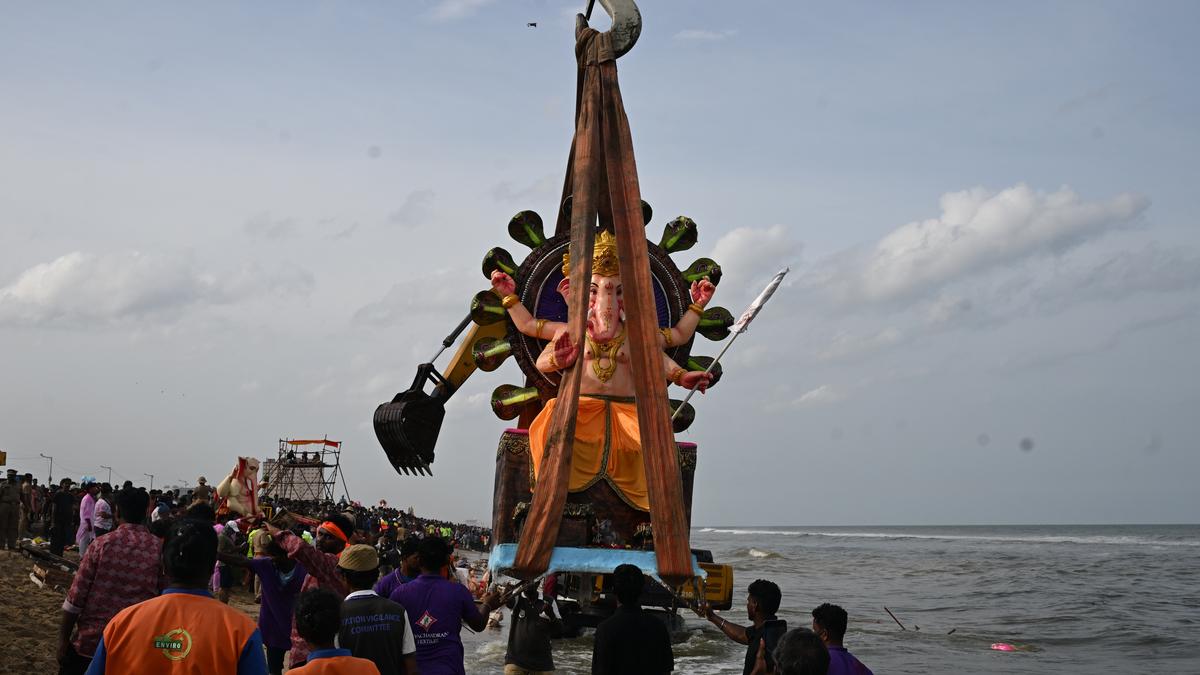Now Reading: NGT Pulls Up Chennai Corporation Over Violations in Vinayaka Idol Immersion
-
01
NGT Pulls Up Chennai Corporation Over Violations in Vinayaka Idol Immersion
NGT Pulls Up Chennai Corporation Over Violations in Vinayaka Idol Immersion

Quick Summary:
- The Southern Bench of the National Green Tribunal (NGT) criticized the Greater Chennai Corporation (GCC) for non-compliance with environmental regulations during Vinayaka idol immersion.
- Waste from the immersion was dumped on Pattinapakkam beach, an ecologically sensitive area, violating environmental protection laws.
- GCC failed to remove debris by August 29 as ordered by the Tamil Nadu Coastal Zone Management Authority (TNCZMA), despite assurances given during a prior hearing.
- The NGT highlighted that Vinayaka idols were immersed in the sea without ensuring they were made of eco-friendly materials, in violation of earlier directives by the Madras High Court.
- Concerns were raised about potential harm to marine life and coastal ecosystems due to unsafe practices.
- The tribunal questioned why no fees were collected for immersions,which could have funded clean-up efforts.
indian Opinion Analysis:
The criticism directed at GCC underscores systemic lapses in enforcing environmental safeguards during religious events like vinayaka idol immersion. These lapses have broader implications not just for marine ecosystems but also for public accountability. Eco-friendliness is increasingly emphasized within court rulings concerning such activities; however, noncompliance creates legal risks and diminishes sustainability efforts. A clear mechanism – such as fee collection for clean-up funding – could balance both cultural traditions and ecological responsibilities effectively if implemented consistently. This incident serves as a reminder of IndiaS growing challenges in reconciling heritage practices with urgent environmental conservation needs.
Read More: Source Link

























